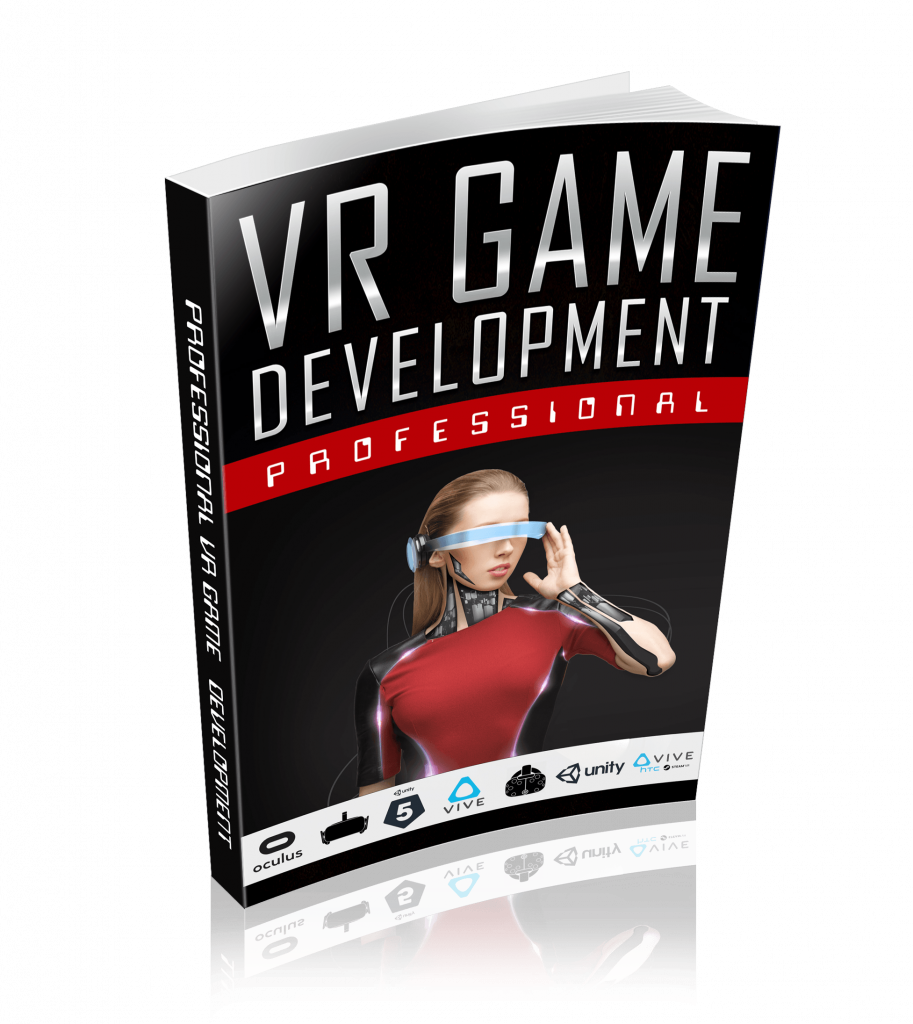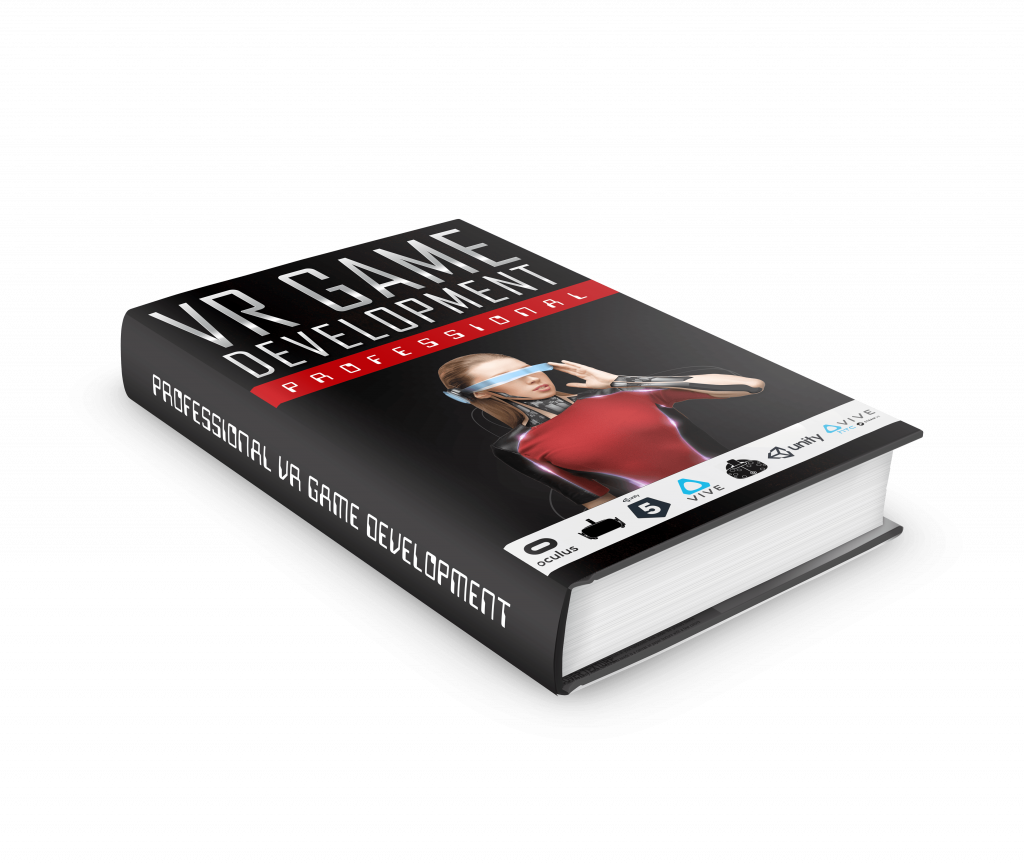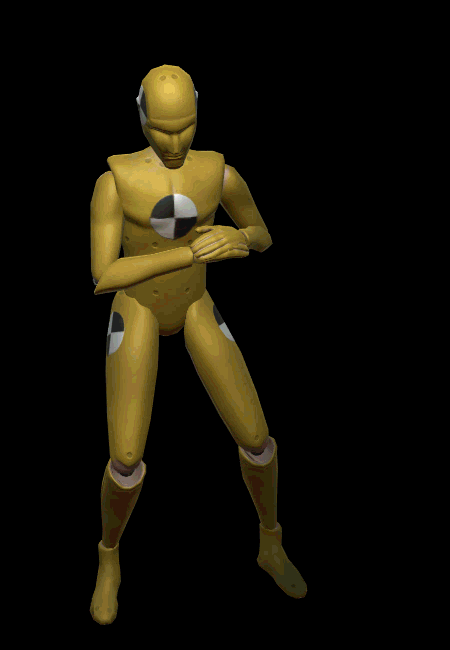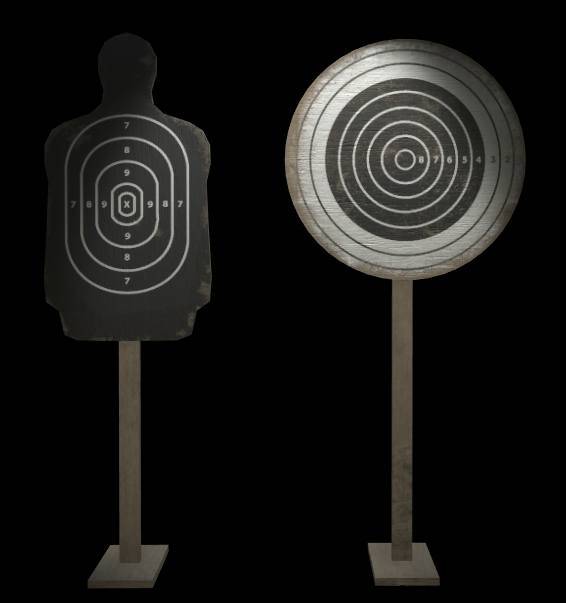Wanna to get into VR before it's too late?
You can build a VR game
Get started today (no VR experience needed)
Stop just watching VR Grow from the sidelines...
JOIN IN & Create your VR Experience today!
Let me tell you a quick story about how I got started in Virtual Reality development. Like many people (perhaps like you), I was ecstatic when I first learned about the Oculus Rift Dev Kit. I missed the Kickstarter, but the second I could order one, I entered my credit card number... then sat waiting impatiently for the UPS driver to deliver the future to my front door.
When my Rift finally arrived, I ran through the setup and launched a demo. You may have seen the Tuscany demo... by today's standards it's pretty bland, but when I first saw it I couldn't hold back the glee. Within 15 minutes, I was loading up Unity and trying to see what I could do.
But I quickly FAILED! Going into VR development with no plan led me to create a couple bad experiments I could show friends, but there wasn't anything that stuck or grabbed anybody's attention. Instead of people being impressed by what I'd built, they mostly talked about pixelation and other stuff far out of my control. Because of this, I almost gave up VR development permanently.
Over the next year and a half, I ordered the DK2, played around a bit more, and really accomplished nothing...
Then Valve & the HTC Vive changed my life!
In January of 2016 I was deathly sick... but... I had a ticket to the Vision Summit. I'd considered staying home, but I really wanted to try out the HoloLens. I arrived, sneezing, coughing, bright red and half dead.. When I got there though, I was greeted by some friends who told me that Gabe Newell had just given out a free HTC Vive to every attendee. I'd never tried the Vive, but assumed it was just like the Rift DK2 I already had...
A few weeks later the Vive arrived in a HUGE box... I set it up and was completely blown away. I couldn't believe what I was experiencing!
I started out by trying every demo that came with it, then quickly jumped over to Unity to experiment and see what I could do. That same day, I started building my first Vive tutorial.. I'd built a Baseball tutorial for the GearVR and it seemed like a natural way to go. This would be similar, but the players could actually swing the bat! I spent the weekend coding, writing, testing, and coding, writing and testing some more...
I asked my wife to test it for me..
She couldn't put it down!
My wife, who never plays video games couldn't get enough of this simple tutorial game I was building. Normally, I can't convince her to play anything newer than Super Mario Brothers... but now she couldn't stop hitting Virtual Baseballs... This is when I realized I didn't just have a demo, I had the start of an actual game.
It was Simple and the market was Hungry!
This 'game' had only been developed for about 10 hours and was already fun.. I knew then that I needed to turn this tutorial into something real, get it done, and publish it before the Vive launched to the public. I spent another 10 hours fine tuning the physics, adding fireworks, implementing leader-boards, shooting trailers, and building an actual game..
While I was building this, I really had no idea what to expect. I didn't know if this game was going to be fun enough to everyone else... maybe my wife was just pretending to enjoy herself? Maybe I'd put it up and be laughed out of the store? To say the least, I was nervous as hell, but I was having fun and I was going to FINISH!
I spent my nights for the next couple weeks digging in, integrating Steam SDKs, leaderboards, achievements, and tuning things for performance. - After I got it to a point where it worked, was playable, and kinda fun, I submitted it!
After a little back and forth with Steam, learning how to setup the store page, my game was approved!
Then the sales started coming in...
I really wasn't sure if anyone was going to buy my little VR game... but on release day I saw the sales start pouring in. A couple days later, I saw clips of my game being covered on news shows... And sales kept coming in...
Even after working in games for almost 20 years, these sales really shocked me. Sure, I've been part of giant AAA launches before, with 100+ man teams... but I'd never seen a small personal project take off like this.
Game #2 was even better!
For game #2, I went with the classic shooter style. Wave shooters are some of the most popular games, because shooting stuff in VR is so much fun.
While I was building it, I took the game around to every meetup, VR group, or gathering of people I could find. I knew I needed feedback on what worked well, what confused people, and what was just plain terrifying.
This game took about a month to build, but the payoff was well worth it. At launch, it was selling over $3,000/day.
And I Kept Going, more games, more designs, all kinds of systems
After building a successful shooter, I was ready to try other genre's. I wanted to really dig in and try out all these other systems I'd been experimenting with.
I wanted to build games with new movement systems, teleportation, dashing, free movement. And I wanted to try the awesome arm swinging and leaping functionality popularized by games like Climbey.
So I shipped my third game, my fourth, then my fifth.. Each game taught me new lessons about VR. I discovered dozens of little tricks to make development easier, keep framerate as high as possible, and make players happy.
And recently I shipped out my 6th VR game to Steam.. a multiplayer rampage style monster crushing fest.
I've been able to release half a dozen VR games in the last year alone. That's allowed me to tune my VR skills, figure out the best practices for VR, and discover all kinds of optimizations.
While I did this, the teacher side of me kept detailed notes, knowing one day I'd share this info and help others achieve the same success I was having.
Success is easy, you just have to decide to get started..
We're still early in VR, and there's not a lot of competition. Just like in the early days of mobile, it's a goldmine ready for you to jump in. Figuring out how to get started was definitely the hardest part... and I wish I'd had some guidance from the beginning.
Because of that, I've decided to help new developers get started and get their first game shipped. I've written a bunch of blog posts covering some of the parts, but now I'm making it easy!
Don't waste time... Get started fast and get your first sale!
Over the last year, I've had dozens of people ask me how I got started, what worked, what they should do...
I've given lots of advice, helped a few people start up and release their own games. But the number of request is so large that I can't keep up. So to make sure everyone has the same opportunity for success that I've had I decided to put what I've learned down on paper and share it with others who love VR and want to make it big in this new market.
Today it's FINALLY AVAILABLE to insiders like you!
Professional VR Game Development
I'll run you through all the basics, teach you how to build your first VR game and do it right! You'll get the tools to start going and do it FAST! By next week, you'll be showing off you're inner superstar and on your way to being a successful game developer!
- Build a VR Shooting Game: We'll cover everything you need to get guns working right. Shooters are the biggest thing in VR right now, so it's our first priority.
- Discover tricks to make extending your game easy: Everything in this course is built with re-usability and extensibility in mind. The components you'll use can be dropped right into a variety of game genres.
- Show off your work: You'll have something to put on your portfolio, show at interviews, and brag about to your friends.

Get Started Today
You can wait until the VR goldmine ends... or Grab it today and get started right away and avoid missing out!
Others are jumping in head first, taking advantage of the opportunity with a new market. Many of them missed the mobile rush and don't want to miss out this time.

$397 $297
Get started TODAY

100% Satisfaction Guaranteed

Secure
Payment

Jason's "Better than Amazon.com" 100% Satisfaction Guarantee
Amazon's return policy is great, because they care about having happy customers. I feel the exact same way, but I realize sometimes it takes a while to really know if something's right for you.
So instead of a simple 30 day policy, I'm going with a full year!
That's right, you are fully protected by a 12 month 100% Satisfaction-Guarantee.
I believe there should be no risk when you invest in yourself, so this is a NO-RISK offer!
If you
don't get it, decide VR is not for you, or just change your mind, just let me know and I'll personally send you a prompt no questions refund.
What's Included
-
Full Working Project
After completing this course, you have a full working project you can use as a starting point for new games - 13 Chapters & over 200 pages of detailed information
Step by step instructions on how to build your game. Everything from model importing and setup and animations, to SteamVR input handling, and even Virtual Reality UI setup. - SteamVR Integration
Learn how to use SteamVR the right way. You'll discover all the amazing functionality available to you for easy interaction with the controllers. Everything from shooting to picking up and throwing objects. - Audio
Sound is critical in VR. To have an immersive game, the sound needs to be perfect. - Animating
You'll learn how to setup animations in Unity and tie them into your VR game using mecanim. We'll also cover some tricks to re-use existing animations for things they weren't intended to do. - Haptic Feedback
Playing a VR game without haptic feedback just feels wrong. Chapter 6 will lead you through the process of using haptic feedback to make your players experience impactful. - Particle Systems
In a normal game, particle systems are important for making your game look polished. In VR this is even more true. That's why Chapter 7 details how to setup your particle systems and tie them to player actions. - Decals
As an extra bonus, a full working decal system is included. If you shot the ground and didn't see a hole.. well that'd just feel strange. Not to worry, you can use this decal system freely and easily modify it for any game you want. - Environment Building
If you're not an artist, setting up an environment can be hard. But even a pure programmer can make a decent looking game level by taking advantage of some simple tricks you'll learn in chapter 10. - UI & Text
Building a UI that works in VR is very different from one that works for 2D. You'll learn the nuances of world space UI's, how to add them to your scene & objects. In chapter 11, we'll even put an ammo counter on the side of a weapon. - Object Interaction
VR is all about interaction, you'll learn how to interact with objects, picking them up, throwing them and more. - Performance Tips
If your game doesn't keep above 90fps, you'll have real problems. Luckily there are a bunch of tricks I've learned and they're all available to you in chapter 13. This section alone can double or triple your performance, lowering your min-spec and drastically increasing the number of people who can play your game. - Locomotion
My first VR game was stationary. Since then, I've build games with just about every locomotion system possible. This course will teach you which systems work best and how to integrate them into your game. -
High quality art assets
Normally, you'd pay $20 or more for a single high quality weapon model. This guide includes a bunch of assets that you can use however you want totally FREE!



-
Yours to keep!
Even if you return the guide, the art, interfaces, code, and project are yours to keep and include in your games completely free of charge! - Performance & Architecture Guidance
This course is full of great tips to keep your framerate up and your project clean and extensible.
What other developers are saying
Before getting Jasons VR course, I had no idea where to start. I wanted to make a game, but all my experience is with enterprise businesses. His course made it easy to get started even though I'd barely touched Unity before. After completing the course, I started to build my own game and it's going great. Thanks Jason!
Web Developer
Jason is amazing at teaching. I never thought I'd be able to write code, I'm an artist. But his step by step approach made it possible for me to integrate my art into a game of my own. When I had problems or questions, he was there to help me every time.
 James Rochelle
James RochelleArtist
FAQ
Can I really complete a game in a week?
Normally... if someone asked me this, I'd say 'probably not'. But there's nothing normal about VR right now. The scope of the games being built isn't enormous, you're not competing with Halo 5 or Call of Duty Ultra Super Mega 17. You can definitely build something fun on a very short timeline, and with the guidance provided here, you'll have a great jump start.
What if I don't know how to use Unity?
If you're brand new to Unity, or only played around a little, building something fun is the best way to get going. Nobody learns from reading documentation! Watching a bunch of videos could work, but turning that into something you can play, share, and grow from isn't easy, and getting started should be easy!
At the end of the week, you'll have your first project done. If you get lost or have problems, the entire project is always available for you to reference and learn from. And don't forget, you'll be starting with a solid foundation of a well architected solution you can base all future learning on.
I've built mobile games, is this really that different?
In some ways, your experience translates over great and will give you a big advantage. But there are some big differences. Just to start, the types of things a mobile game needs optimized are drastically different. You're not running on a little ARM cpu, this is all high end desktop stuff. Your target video cards are also powerful, but you need to know where the bottlenecks are.
On top of all that you've got Input, Audio, Particles, and a 90FPS target to stay above at all times. So having some mobile experience is great, and this course will help you translate that into high quality VR gaming.
Is anyone really gonna buy my game?
This was a big question I had when I first started. Much to my surprise though, the answer was a big fat YES! Once you know how to get started, building a full game and selling it is the next natural step. And if you know anything about VR, you probably know that there's demand for all kinda of things that don't exist yet. The opportunities are huge, but they wont last forever. If you want to make a game and sell it, now is the time to get started!
What's different about this course?
There are of course other ways to learn VR development. Another option is personal one on one or group training, but that typically runs around $250/hour. You can dig through video tutorial sites and maybe find something that works if you don't mind pausing, rewinding, & reading code from a video. Or you can just go it your own and try to figure it all out alone.. If money isn't a factor and you have unlimited time, the alternatives may seem appealing, but if you're like me, a quick guide you can knock out in a weekend is the best option.
Professional VR Course
- Build an entire game in a week!
- Equivilent to over $2,000 worth of personal training that you can access any time
- Much cheaper than $250/hour consulting
- Complete documentation of everything you do. Know what's happening and why.
- Step by step instructions with nothing missing
- Learn from my mistakes not your own
- Make your VR developer dream a reality
- 100% 'Better than Amazon' money back guarantee

$397 $297

100% Satisfaction Guaranteed

Secure
Payment

Jason's "Better than Amazon.com" 100% Satisfaction Guarantee
Amazon's return policy is great, because they care about having happy customers. I feel the exact same way, but I realize sometimes it takes a while to really know if something's right for you.
So instead of a simple 30 day policy, I'm going with a full year!
That's right, you are fully protected by a 12 month 100% Satisfaction-Guarantee.
I believe there should be no risk when you invest in yourself, so this is a NO-RISK offer!
If you
don't get it, decide VR is not for you, or just change your mind, just let me know and I'll personally send you a prompt no questions refund.
P.S.:: I'm a developer just like you, building VR games for fun and profit. If you go through the course and still have questions, remember you can always send me an email (contact below) and I'll be happy to guide you along the right path.
Yes, I want to start getting building my game now!